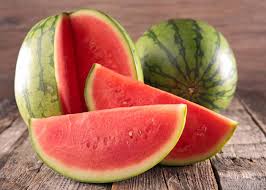THE STOLEN WATER (MELON) SYNDROME
When I was 13, our family lived in the small community of Cordele, Georgia. Entering town, a sign announced their claim to fame: "Watermelon Capital of the World." Everywhere you looked you saw watermelons: growing in fields, at fruit stands and stacked on porches. You could find and eat watermelon for free, pretty much anytime you wanted.
One night I joined some friends for a sleepover at a buddy's house. In the middle of the night, the four of us snuck out. Walking down a country road, we passed a watermelon patch. Our host stopped, and glancing at each of us, asked, "Wanna take some watermelons?" For four young teens, it seemed a promising adventure. The barbed-wire fence was low enough we stretched our legs over it. Crouching down, we each grabbed our prize. Our plan was to casually stroll away, but then one of the guys thought he heard a noise. We all bolted over the fence, with watermelons securely in tow. Jumping into a drainage ditch, we busted our melons open and consumed our feast. It was the sweetest, most delicious watermelon I ever tasted.
We didn't need to steal those watermelons. We could've laid our paws on a dozen of them at my friend's house. So why'd we do it? Simply because we weren't supposed to. And why did it taste so sweet? Same reason. Our human nature automatically desires what we're not supposed to have.
This goes way back. God created Adam and Eve, placing them in paradise on earth. Imagine how wonderful it must have been, living in a garden personally designed by God, just for you. The variety of fruit they could consume must have been amazing. God told them they could eat from any trees in the Garden, with one exception. (Genesis 3:2). And which one did they automatically want to eat from? The forbidden fruit.
We're all wired this way. Put a kid in a room filled with toys. Tell him he can play with any of them he wants, for as long as he wants, but then add, "But whatever you do, do NOT touch the vase on the table." Guess what most kids are going to do, as soon as you leave the room? You know the answer. They'll eventually pick up the vase.
Understanding this aspect of our nature can save you from all kinds of trouble. Proverbs 9:17 depicts a woman attempting to seduce a young man. She calls out to him, "Stolen water is sweet; food eaten in secret is delicious." It's the same message: we want what we're not supposed to have. Be alert to that. Otherwise, the enemy will clobber you unawares. Stolen water (and watermelon) appeals to our fleshly nature. It's sweet...at least for a while. But in the end, it turns bitter, and costs you big-time!
